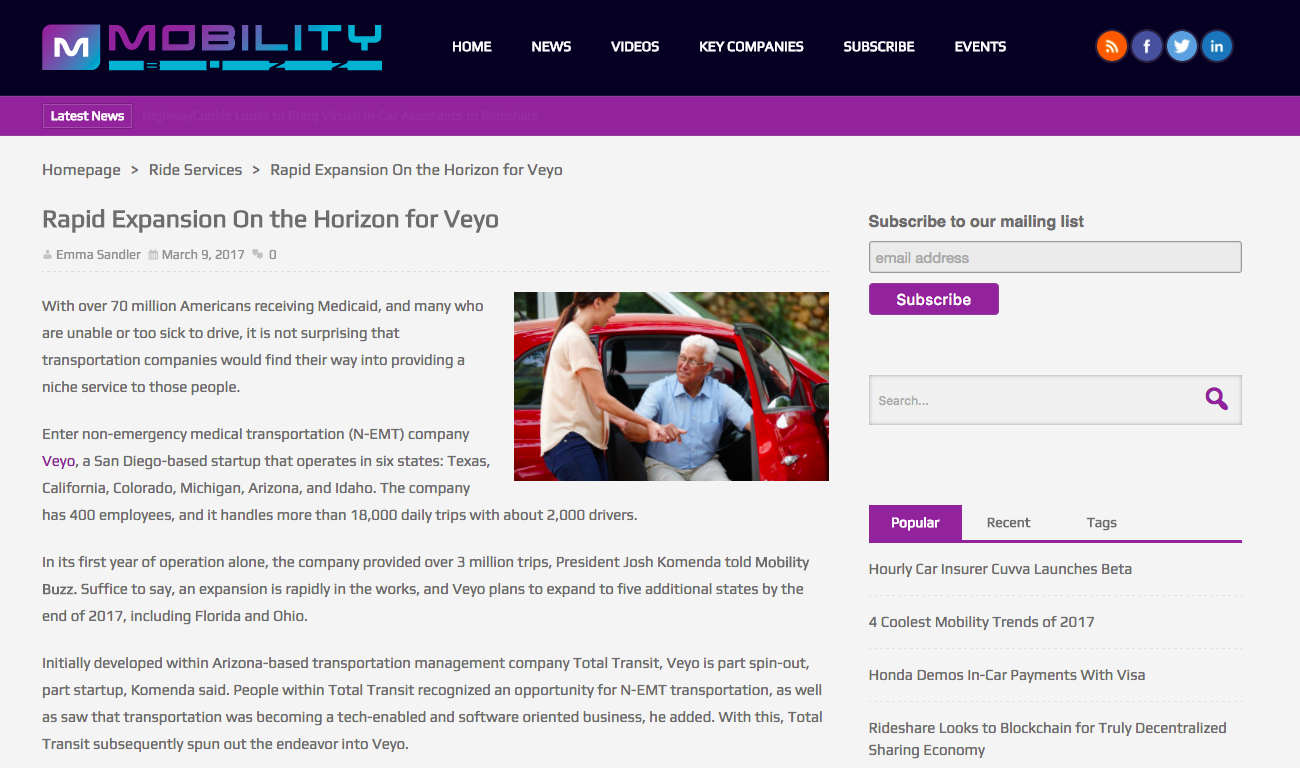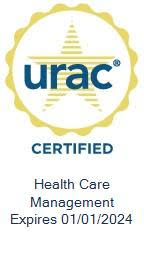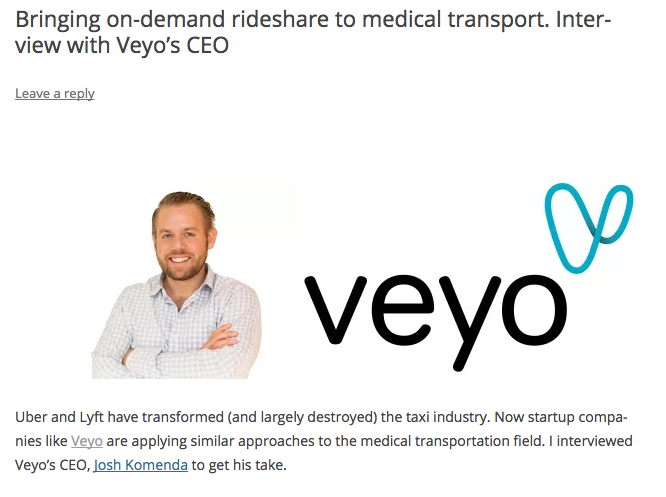Rapid Expansion On the Horizon for Veyo, an NEMT Company
March 10, 2017
With over 70 million Americans receiving Medicaid, and many who are unable or too sick to drive, it is not surprising that transportation companies would find their way into providing a niche service to those people.
Enter non-emergency medical transportation (N-EMT) company Veyo, a San Diego-based startup that operates in six states: Texas, California, Colorado, Michigan, Arizona, and Idaho. The company has 400 employees, and it handles more than 18,000 daily trips with about 2,000 drivers.
In its first year of operation alone, the company provided over 3 million trips, President Josh Komenda told Mobility Buzz. Suffice to say, an expansion is rapidly in the works, and Veyo plans to expand to five additional states by the end of 2017, including Florida and Ohio.
Initially developed within Arizona-based transportation management company Total Transit, Veyo is part spin-out, part startup, Komenda said. People within Total Transit recognized an opportunity for N-EMT transportation, as well as saw that transportation was becoming a tech-enabled and software oriented business, he added. With this, Total Transit subsequently spun out the endeavor into Veyo.
Veyo currently operates by employing drivers to pick up and drop off Medicare and Medicaid recipients to their doctor appointments. Drivers, called “independent driver providers,” are typically paid on per-mile basis, and Veyo funding comes from its parent Total Transit.
“Think about [independent driver providers] like an Uber or Lyft driver, but with better training,” Komenda said. A Veyo driver receives training in first aid, CPR, disability training, cultural sensitivity, HIPAA training, and helping people to and from a car.
And Veyo isn’t the only startup tapping into the N-EMT market. SPLT, a Detroit-based rideshare company, also caters to this demographic. SPLT partnered with Lyft last year to allow seniors in Michigan request transportation to and from appointments, by submitting their name, pick-up and drop-off locations. SPLT handles scheduling, as well as insurance-related verifications. However, all of Veyo’s rides are paid for by Medicaid and Medicare Advantage as part of his or her health insurance benefit, so there’s no cost to the rider in Veyo’s model.
Veyo could also branch out into other non-emergency services — which Komenda sees as a $20 billion market — such as general elderly transportation, prescription delivery, and hospital discharges. The startup has also had “general discussions” with commercial and private healthcare networks.
But for now, the focus is on expansion into significant eastern markets, such as Florida, where over $21 billion combined federal and state spending occurred in 2015. The expansion into the five new markets will take place mostly during the second and third quarters, Komenda said.
Separately, the recently introduced congressional bill to dismantle the Affordable Care Act, is something also on the radar for Veyo, as Medicaid may be cut by the new bill, Komenda said.
“[One of our missions] is to make sure people know what N-EMT does and know how much it saves money,” Komenda said, adding that he wants to inform the legislature that cutting funding from something like N-EMT has long-term impacts both to the healthcare system overall as well as money lost.
The original article can be found on Mobility Buzz.



